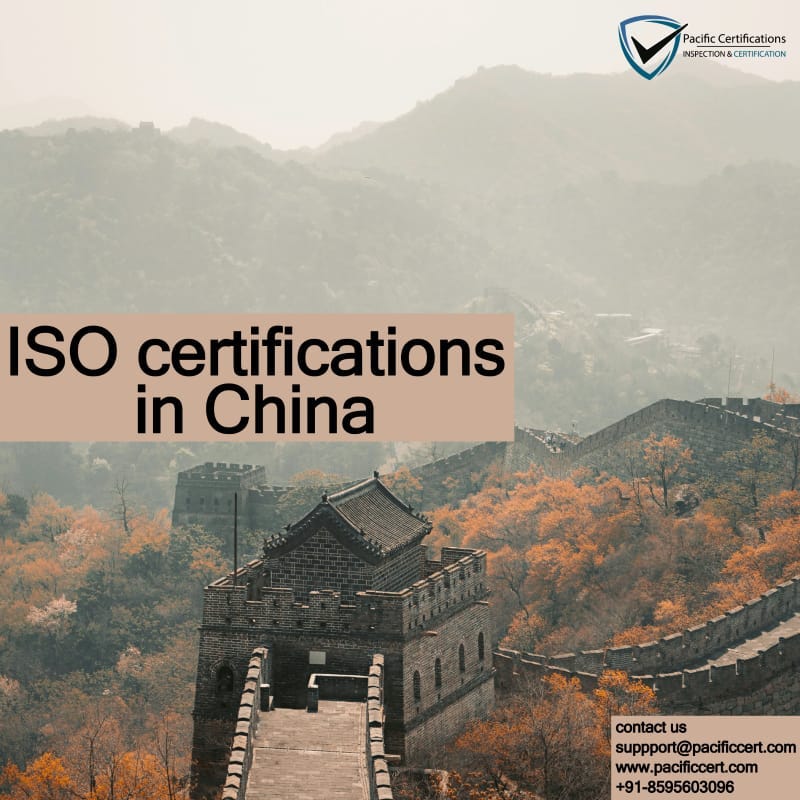ISO certifications in China and ISO applicable standards And how Pacific Certifications can help with audit & certification

ISO certifications are pivotal for organizations across the globe, including those in China, signifying compliance with internationally recognized standards for quality, environmental management, occupational health and safety, information security, and various other aspects of business operations. These certifications are crucial for enhancing process efficiency, meeting regulatory requirements, and boosting customer confidence. The process of achieving and maintaining ISO certification involves a comprehensive audit of the organization’s processes and systems against the relevant ISO standards.
ISO Certifications Common in China
Several ISO standards are widely applicable and sought after by organizations in China, each focusing on different aspects of business operations:
- ISO 9001 — Quality Management Systems (QMS): This is the most popular standard globally, including in China. It focuses on meeting customer expectations and delivering customer satisfaction.
- ISO 14001 — Environmental Management Systems (EMS): This standard is essential for organizations committed to managing their environmental impact, ensuring sustainability, and complying with environmental regulations.
- ISO 45001 — Occupational Health and Safety Management Systems: This standard provides a framework for managing occupational health and safety risks, enhancing worker safety, and reducing workplace risks.
- ISO 27001 — Information Security Management Systems (ISMS): Particularly relevant in the digital age, ISO 27001 helps organizations secure their information assets, including financial information, intellectual property, employee details, and information entrusted by third parties.
- ISO 22000 — Food Safety Management: This standard is crucial for businesses in the food chain, ensuring food safety and compliance with relevant regulatory food safety requirements.
Click here to find out more applicable standards to your industry
Comments
Post a Comment